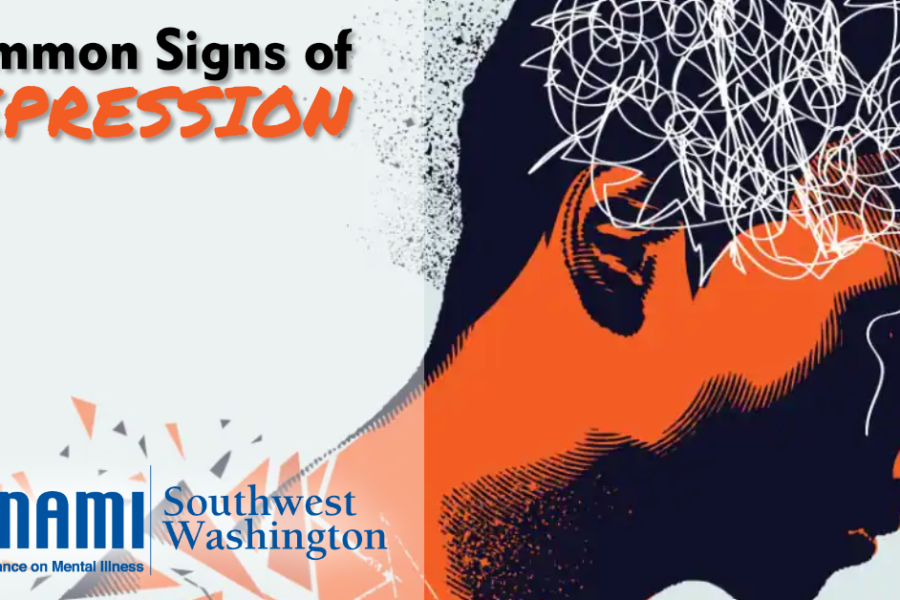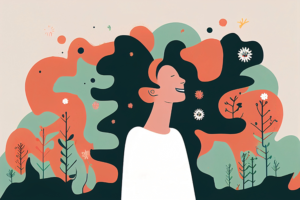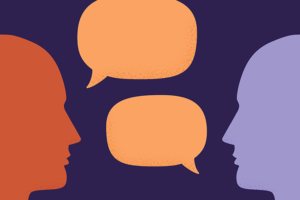By NAMI Southwest Washington
Depression is more than just feeling sad or going through a rough patch. It’s a serious mental health condition that affects millions of people around the world. Recognizing the common signs of depression is crucial, not only for those experiencing it but also for loved ones who can provide support and encouragement.
What is Depression?
Depression, often referred to as clinical depression or major depressive disorder, is a mood disorder characterized by persistent feelings of sadness, hopelessness, and a lack of interest or pleasure in daily activities. It goes beyond the usual ups and downs of everyday life; instead, the emotions and challenges experienced with depression can interfere with daily functioning, leading to both emotional and physical symptoms.
The cause of depression is multifaceted, encompassing a combination of biological, psychological, and environmental factors. Those with depression may experience a range of symptoms including changes in sleep and appetite, fatigue, difficulty concentrating, feelings of worthlessness, and even thoughts of death or suicide. The condition can manifest differently among individuals, making it essential for those experiencing symptoms to seek professional help. Early diagnosis and treatment can be pivotal in managing the symptoms and improving quality of life.
Common Signs of Depression
A hallmark sign is feeling sad, empty, or hopeless for extended periods, often every day for at least two weeks. Anhedonia, or the loss of interest in activities once enjoyed, is also common symptom. This could range from hobbies, social events, or even sex.
Some people eat more when they’re depressed, while others lose their appetite. This can result in significant weight gain or loss. An additional stress that can indicate depression is insomnia (difficulty falling or staying asleep) or hypersomnia (oversleeping).
Excessive feelings of guilt, worthlessness, or self-blame are common, as well as difficulty concentrating or making decisions, trouble focusing, remembering details, or making decisions can also be signs.
Physical symptoms can include unexplained aches, pains, cramps, or digestive problems that don’t seem to go away even with treatment. Ultimately, these symptoms can lead to suicidal thoughts or attempts.
The Silver Lining: Screening Saves Lives
Despite the challenges depression presents, there’s hope. One of the most powerful ways to combat this condition is through early detection, which often starts with screening.
Screening for depression is a simple process, typically involving a series of questions about feelings, mood, and certain behaviors. These questions help medical professionals identify signs of depression, even if some symptoms are not overtly apparent. Once detected, many effective treatments, from therapy to medication, can assist individuals on their journey to recovery.
How to Get Screened:
- Visit Your Primary Care Provider: Many primary care providers offer depression screenings during regular check-ups. They can also provide referrals to mental health specialists if needed.
- Seek a Mental Health Professional: Psychologists, psychiatrists, and therapists can conduct screenings and provide treatments tailored to individual needs.
- Online Self-Assessments: While not a replacement for a professional evaluation, many trusted organizations offer online quizzes or questionnaires to help individuals gauge their mental health.
- Community Health Events: Sometimes, local organizations or clinics will offer free screenings at community events or health fairs.
Depression is a battle, but it’s one that can be won with awareness, understanding, and proactive action. By recognizing the signs and seeking help early, many people find relief, hope, and a path to a brighter future. Remember, your mental health is as important as your physical health, and there’s always hope. Don’t hesitate to reach out and get screened. Every step taken is a step closer to well-being.




